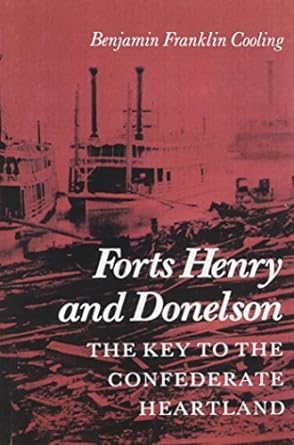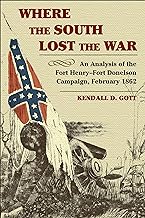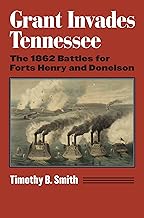WTCW Essential Books: Fort Donelson
- Darryl R. Smith
- Feb 1, 2024
- 3 min read
Essential (adjective): absolutely necessary; extremely important.
While Fort Henry was the decision point in Grant's campaign against the river forts, one needs scuba gear to see Fort Henry, lying as it does at the bottom of Kentucky Lake. However, the War Department made efforts in the 1920s and 1930s to create the Fort Donelson National Battlefield. Unfortunately, the ground encompassing the breakout was not part of the government's plan, and so today along the axis of the Confederate attack on February 15th one finds developed streets and post war structures. In recent years the American Battlefield Trust has been involved securing large tracts of land (homage to Monty Python), mostly tracts that involved the breakout. While no interpretation on these recent additions has been put in place at the time of this writing, one can, armed with a few good books, gain a general sense of the entire Fort Donelson story, and the Fort Henry and Donelson Campaign is blessed with some excellent titles.
There are several titles related to Henry and Donelson, but in keeping with the essential theme, I will pinpoint the books that I feel are essential. Let's start with the "big three:"
Cooling, Benjamin Franklin - Forts Henry and Donelson: The Key to the Confederate Heartland. University of Tennessee Press, 1987. The first definitive account of the campaign, and one told mostly through a campaign point of view. Dr. Cooling's work is well written and set the standard for four decades.
Gott, Kendall D. - Where the South Lost the War: An Analysis of the Fort Henry-Donelson Campaign February, 1862. Stackpole Books, 2003. Gott's effort lies between the operational level of Cooling and the tactical view of Smith (see below), with a focus on command decisions. It is an excellent effort, and laced with several maps, although their use of certain unit symbols adds too much "busyness" to each map.
Smith, Timothy B. - Grant Invades Tennessee: The 1862 Battles of Forts Henry and Donelson. University Press of Kansas, 2016. Mic drop time, as this is the definitive account of the campaign, from the operational level and stressing the importance of Fort Henry's fall, to the perspective of the soldier. If one wanted one detailed book, this is the one to purchase. Solid maps, but strangely without elevation features, and not enough (if you are like me, dozens of maps are also essential). Smith also hammers home with clarity the importance of Henry over Donelson.
There are also second tier essential offerings for those wanting a deeper immersion into the campaign:
Cathey, M. Todd, and Robnett, Ricky W. - The River Batteries at Fort Donelson: Construction, Armament and Battles, 1861-1862. McFarland, 2021. This niche offering is a deep dive into everything known to man regarding the Confederate batteries that overlooked the Cumberland River. One must be a true fanatic to enjoy this title, but it is a worthy effort and a must for the Fort Donelson devotee.
Cooling, Benjamin Franklin - Fort Donelson's Legacy: War and Society in Kentucky and Tennessee, 1862-1863. University of Tennessee Press, 1997. A continuation history after the fall of the forts and the impact of their capture on the course of the war. In some ways I like this Cooling offering more than his book mentioned above.
Gifford, Douglas L. - Fort Donelson Battlefield Tour Guide. Historynutt Books, 2008. As the only tour guide book that I know of on the battle, Gifford's publication has its merits. While suffering from a high quality production value, this tour guide will take you to the places you need to see, both common and off the beaten path.
Logsdon, David R. - Eyewitnesses at the Battle of Fort Donelson. Kettle Mills Press, 1998. I enjoy all of Logsdon's Eyewitness series - they give the reader more of a "you are there" feel. While this series is becoming more difficult to find, they are worth the effort.
As mentioned, there are numerous other Forts Henry and Donelson, ranging from tour guides to biographies on the various commanders. But the above are the essential works for one wanting to understand the February 1862 campaign that helped start the fall of the Confederacy.







I believe there is a guy named Darryl Smith who produced a book on the War Department Tablets of Fort Donelson. Word on the street is that it is a pretty useful book!